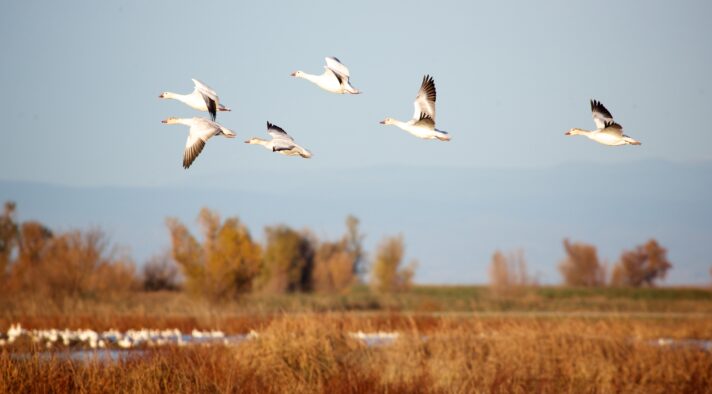On Ocean’s day, we are reminded of the importance of protecting our oceans, and creating the right governance mechanisms to protect and preserve this essential resource. There are many seas but they all make a single global ocean; problems and solutions are shared. The ocean is the real heart and lungs of the planet and a crucial source of wealth and livelihoods for our societies.
- An innovative co-management model
The Government of Catalonia has devised a unique participatory governance scheme for the seas based on co-management that places people and nature at the core of decision-making and devolves effective power to sectoral stakeholders, scientists and civil society. And it works exceedingly well.
Cumulative pressures on the ocean have been assessed globally and regionally pointing to multiple stress factors including the different economic sectors conforming what is now known as the blue economy. Yet, sustainably developing these sectors is an irreplaceable opportunity to produce economic wealth and human well-being our coastal societies cannot afford to miss.
During the last decade many relevant actors started working together to agree on a common view on weaknesses and strengths of current management systems. And, perhaps more surprisingly, the outcome was that one of the main root causes of crisis was the human factor itself: people had been kept apart from policy development. Top down approaches had been alienating stakeholders. This had to change.
First it was the turn of fishery sector. Modern, ad hoc fisheries co-management schemes were tested in the field in Catalonia starting in 2012, with excellent results. The direct consequence of those early successes was the Decree issued by the Catalan Government in June 2018 mainstreaming co-management in the national fisheries legislation, to be applied to all fisheries management plans within its competence.
This meant the first formal regulatory and legal framework ever established for fisheries co-management in (at least) Europe followed later by Portugal. Fishers, managers, scientists and conservation activists are integrated into specific Co-management Committees, all four groups on equal footing when it comes to decision-making powers. Devolution of management power to multi-stakeholder committees at the right territorial scale (the scale that matters) brings management much closer to the field and the coastal community, which increases accountability and compliance as well as enables bioeconomic solutions.
Since 2018, after this legislation was enacted, the management of a total 7 coastal fisheries stretching over most of the Catalan coast has been organized through formal multi-stakeholder co-management committees. Co-managed fisheries cover from popular small pelagic fish (sardine and anchovy), to the recently invasive blue crab to expensive Mediterranean sand-eel, octopus and cuttlefish. Roughly 10% of fish landings in Catalonia already originate from co-managed fisheries. The experience so far has proven radically transformational for fishing communities as well as for the other actors involved.
- Impact on citizens and local actors
Mutual trust has dramatically increased among all members: fishers and scientists team up in joint data collection activities aimed at informing sustainable management, fishers rely on the administration to ensure compliance and NGOs have become a reliable partner that closes the gap between the fisheries world and the wider public constituency. Typically, the new management plans are being set up by the different committees after 1 year of joint work. The new management plans are very agile, flexible and adaptive, and through real-time fine-tuning ensure the sustainability of the fishing activity. A bioeconomic approach is applied that seeks to improve incomes without increasing the pressure on fish resources, while maximizing employment.
Overseeing the participation of scientists in every co-management committee, the new Catalan Research Institute for the Governance of the Sea (ICATMAR) focuses on the scientific monitoring and assessment of fish stocks at the geographical scale relevant to the different fisheries.
Overall, the new participatory governance scheme brings hope and self-esteem amid a pervasive trend of overfishing and environmental and social crisis in the Mediterranean coastal communities. Starting from a set of pilot fisheries it now spills over the entire sector, inspiring other fleets to increase their responsibility -like, for instance, unilaterally setting apart marine areas off-limits to fishing for conservation purposes along the Catalonian coast).
Adoption of a governance scheme for Catalan fisheries based on equal involvement in decision-making of fishers, administration, scientist and NGOs has been a real change maker for sustainability at the environmental, social and economic levels. Fisheries co-management contributes both to improve the conservation status of marine ecosystems and to guarantee healthy coastal communities through sustained and decent livelihoods and the supply of nutritious, high-quality food.
- International and European recognition
The innovative new scheme has been recognised internationally. In 2013 it received the World Wide Fund for Nature (WWF) Award for Conservation Merit and in 2018 it was awarded as best practice by the FAO-GFCM and the EU. Also, it has been the object of sectoral and institutional attention from several countries.
Besides replicability, the Catalan governance model has been scaled up. Since 2016 the Catalan administration is working on the ad hoc Maritime Co-management Table of the Baix Empordà Coast. This complex, multi-sectoral table encompasses the main human uses impacting on that stretch of coast and is structured around blue economy actors, administrations, scientific community and the local civil society organisations. All in all, a staggering 76 active members, functioning under a carefully designed participatory scheme.
And why not moving from the field to the institutions and empowering stakeholders at the highest possible level: that of national policies? In 2018 the Catalan government adopted the 2030 Maritime Strategy of Catalonia to boost the development of an integral policy on the sea. Ocean governance is at the core of this strategy, including the establishment of the Catalan Maritime Co-management Council. This recently constituted participatory body, integrated by regional and local administrations, marine scientists, economic sectors and NGOs, aims at co-designing the maritime policy of Catalonia and overseeing the adaptive management of the strategy.
Co-management brings out the best of people and builds a culture of consensus and trust. The ocean and ourselves deserve trying it out.




